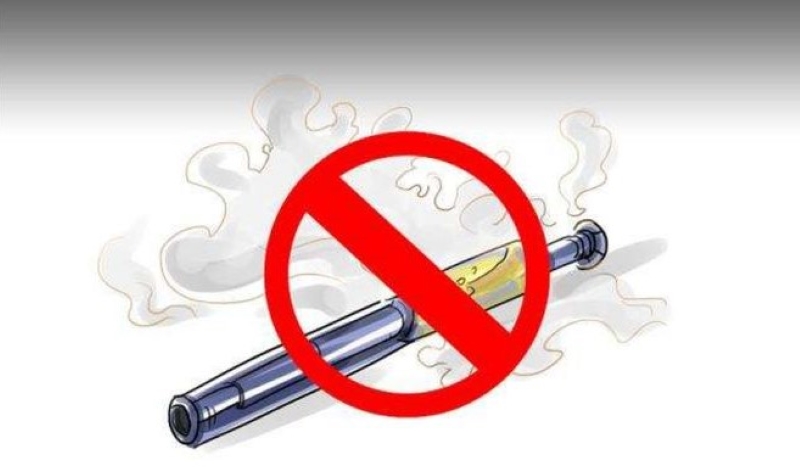In order to protect the environment and eliminate the problem of smoking among teenagers, Belgium will ban the sale of disposable e-cigarettes from January 2025. Belgian Minister of Health Vandenbroucke told the media that e-cigarettes are cheap, more colorful than conventional cigarette packaging, and have various fruit flavors, which can easily attract teenagers to try smoking. Many young people have developed the habit of smoking from e-cigarettes. Although Belgium prohibits minors from smoking, the World Health Organization conducted a survey of 20,000 Belgian teenagers aged 11 to 18 in 2022 and found that 12% of teenagers had smoked e-cigarettes in the past month, more than double the number in 2018. In addition, disposable e-cigarettes contain plastics, chemicals and non-rechargeable batteries, and a large amount of waste is very detrimental to the environment. Therefore, the Belgian government decided to ban the sale of disposable e-cigarettes to solve the problem of smoking among teenagers from the root.
At present, Belgium is the first country in the European Union to ban the sale of disposable e-cigarettes. Germany and France are drafting laws to ban disposable e-cigarettes, and the UK’s e-cigarette ban will take effect in June next year. Vandenbroucke called on EU countries to follow up on the implementation of this ban. This not only reflects the current society’s concern about the health of young people, but also reveals the historical evolution of tobacco products and their impact on public health.
Reasons for Banning The Sale of Disposable E-cigarettes
As a consumer product, tobacco has a long history worldwide. Since the late 16th century, tobacco has gradually become a popular hobby by spreading around the world. However, with the development of scientific research, people have gradually realized the serious harm of smoking to human health. In the mid-20th century, international organizations such as the World Health Organization began to vigorously advocate tobacco control policies and promote countries to take measures to reduce tobacco consumption.
Against this background, e-cigarettes came into being as a substitute for traditional cigarettes. At first, it was seen as a tool to help quit smoking, but over time, its potential risks, especially its impact on young people, have become increasingly prominent. Belgium’s decision to ban the sale of disposable e-cigarettes is based on its concern about the rising trend of smoking rates among young people in the country. According to a 2022 survey report by the World Health Organization, the proportion of Belgian teenagers who have tried e-cigarettes in the past month has reached 12%, doubling from four years ago. These data show that despite the existence of age restrictions, the actual implementation effect is not ideal.
In addition, in addition to health risks, disposable e-cigarettes also bring serious environmental problems. Such products usually contain plastics, chemicals and non-rechargeable batteries, which will pollute the natural environment when discarded in large quantities. Therefore, the Belgian government’s move is not only to protect the next generation from nicotine dependence, but also to respond to the growing awareness of environmental protection around the world.
At the end of December 2022, the Belgian government announced the Federal Inter-Federal Smoke-Free Generation Strategy 2022-2028, whose main goal is to reduce the number of smokers aged 15-24 to 6% or less by 2028. To achieve this goal, Belgium decided to ban the sale of disposable e-cigarettes. In order to comply with European law, especially the Tobacco Products Directive, Belgium needs the approval of the European Commission to implement its new regulations. Currently, only disposable e-cigarettes containing nicotine will be banned, although Belgium also hopes to see disposable e-cigarettes without nicotine banned as well.

EU Countries Begin to Restrict The Sale of Disposable E-cigarettes
It is worth noting that Belgium is not the only country to take such measures. More and more European countries have begun to work to restrict the sale of disposable e-cigarettes. For example, these countries include the United Kingdom, France, Ireland and Germany. It can be seen that how to balance the relationship between individual freedom and public interest has become one of the important issues facing many countries.
On January 29, 2024, the British Prime Minister announced during a visit to a school that the UK will ban disposable e-cigarettes as part of the government’s ambitious plan to address the increase in the number of young people using e-cigarettes and protect children’s health. The British government’s consultation on the ban on disposable e-cigarettes has received overwhelming support, with nearly 70% of parents, teachers, healthcare professionals and the public supporting the measure.
On October 13, 2023, Stephen Donnelly, Irish Minister of Health, announced that he had initiated historic legislation to ban all disposable e-cigarettes for all ages in Ireland. Mr. Donnelly said he believed that the tobacco industry was using e-cigarettes to get children to smoke again.
On March 10, 2023, the German Federal Senate voted in favor of banning disposable e-cigarettes. In addition, the state parliament approved a motion in Bavaria in accordance with the amendments requested by the German Environment, Economy and European Commission. Therefore, the Bundesrat calls on the federal government to advocate for an effective ban on the sale of disposable e-cigarettes at the national and EU levels. In addition, the German Bundesrat pointed out that disposable e-cigarettes are often not properly disposed of as electrical appliances, but are disposed of with household waste.
For adolescents, early exposure to any form of tobacco products may have a long-term impact on their growth and development. For the whole society, it is necessary to comprehensively consider economic interests, cultural habits and other factors to seek the best solution while ensuring the well-being of citizens. In the future, as more countries join this ranks, joint efforts can effectively curb the spread of this phenomenon and create a healthier living environment for future generations.












